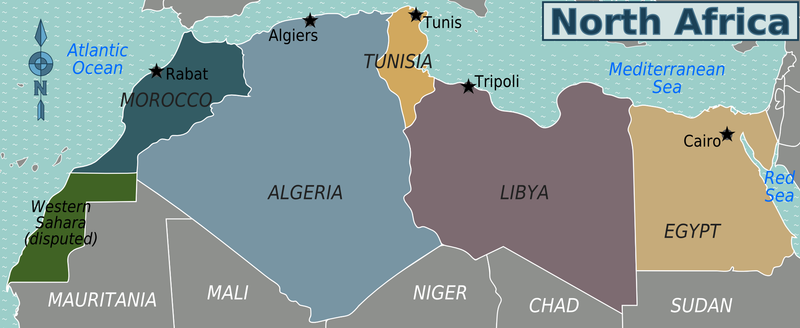From the Eastern Mediterranean to North Africa—Drifting Ever Westward

The great powers are no longer merely asserting influence—they are fighting to expand and defend their spheres of control in a region boiling with competition and challenges. Energy security is no longer a privilege or luxury; it is a matter of survival amid a global economic transition that erodes old certainties and redraws geopolitical maps.
Europe, trapped in ideological and outdated models, is paying a heavy price. The high cost of energy, irrational labor laws, and suffocating taxes have turned the continent into a case study in competitive inadequacy—a shadow compared to the U.S. and rising Asia. EU policies are so detached from reality that the global market itself is dismissing them. Europe’s deep financial entanglement in the war in Ukraine increasingly resembles a complex economic dead end, where vast resources are committed amid uncertain returns and prolonged instability. This involvement diverts critical resources and attention from urgent domestic priorities, such as investments in energy diversification and infrastructure modernization. The resulting financial pressure complicates Europe’s broader strategic goals, imposing a heavy fiscal burden that threatens its ability to respond effectively to emerging geopolitical and energy challenges.
In the Eastern Mediterranean, the toxicity of oil and gas claims not only perpetuates regional tensions but derails critical infrastructure projects, such as cross-border electrical interconnections that remain on paper. Turkey’s refusal to accept internationally recognized maritime boundaries has complicated exploration and development efforts, adding a volatile geopolitical layer to a zone that could otherwise be energy-stable.
The energy transition—once a luxury and ideological narrative—is becoming a harsh landing for political leaderships nostalgic for the past. Energy is no longer just fuel; it is the barometer of sovereignty, resilience, and survival. The game is changing, and the Mediterranean, along with North Africa, is no longer a secondary stage but the epicenter of a global clash of interests. Countries like Algeria, Egypt, and Libya are redefining their production strategies to balance rising domestic demand with ambitious export goals, while Morocco is emerging as a key hub for LNG and natural gas transit. North Africa is transforming. Despite political instability, it boasts a developed energy and telecommunications transport network, making it a competitive alternative to emerging corridors like IMEC and BRI.
Geopolitical shifts, European energy demand, and Africa’s growing market potential are driving U.S. companies to expand their presence in North Africa, with a long-term investment horizon focused on energy, infrastructure, and technology. Facing China and Russia, they are entering with strategic intent, actively engaging in resource development and infrastructure projects that challenge all other spheres of influence. North Africa could become a critical transit point for U.S. energy exports to Europe and the broader African continent.
Greece, in the face of this storm, cannot afford inertia. Its strategic position opposite Libya and Italy demands alignment with North Africa’s energy pivot. Any delay in interconnection projects or miscommunication in regional diplomacy will turn Greece from a key player into a passive observer. As for the EU, it must quickly shed the illusion of a “green” ideology that has bound it to energy chains with unstable and adversarial positions toward its interests. At this critical crossroads, the future belongs to those who look beyond current obstacles and invest in a secure and multidimensional energy policy—one unafraid to challenge the status quo and build a new chapter of prosperity and security.
The decisions made now will shape the trajectory for decades to come. If Europe wants to survive as a geopolitical actor and not merely a regulatory observer, it must move beyond wishful thinking on energy transition and redefine its relationship with the Mediterranean and Africa.
NAFTEMPORIKI / THE N SOCIETY, Wednesday, October 1, 2025
Από την Αν. Μεσόγειο στη Β. Αφρική, όλο και πιο δυτικά